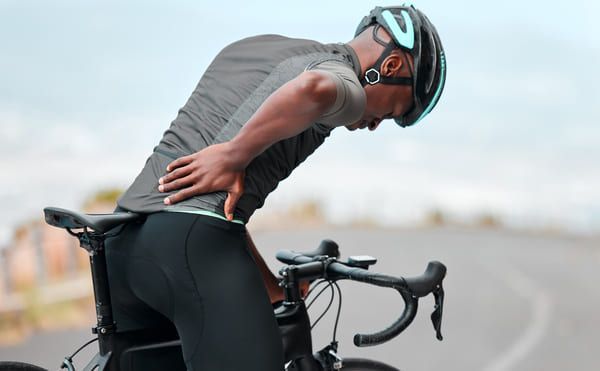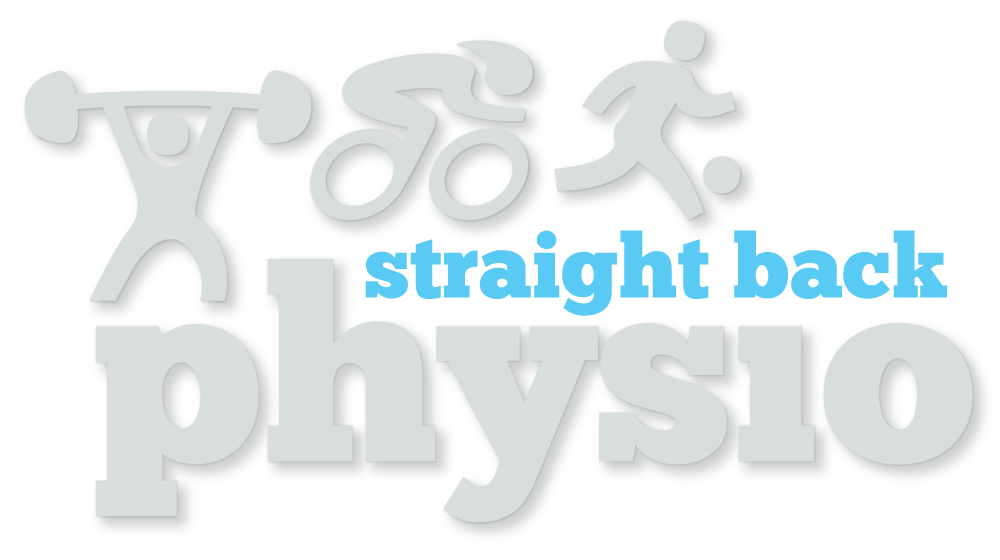Bike Fitting Service in Cheltenham
it will transform your cycling experience

a professional Bike Fit
We have a love for cycling and we are trained in cycling injury assessment, management. A professional bike fitting ensures that your bike is uniquely setup for you. Our cycling physio will leave you feeling your absolute best as you ride, and thereby reducing cycling injuries.
Overuse injuries occur following repetitive loading, the very definition of cycling. You will be subject to rotational stresses and torsion when your foot is fixed to the pedal, or when your hip is fixed to a saddle. Our professional bike fit service recognises that every human body is different, and a standard bike setup probably won't be right for you.
better performance, less pain
Tailoring your bike to your unique size, shape, body strengths and weakness, will reduce or remove many of the issues that cause pain after cycling, whilst also improving both your enjoyment and your cycling performance, allowing you to cycle faster and for far longer distances. In fact performance wise you could increase your Functional Threshold Power (FTP) by up to 50 watts.
Booking a cycling physio assisted bike fit can do more than just transform your riding experience, it can also eliminate those annoying cycling aches and pains that many people get after cycling. Our physiotherapist Stuart has been trained to understand a person's biomechanics and how to apply this to achieve a properly setup bike, even a small adjustment he makes can make a big difference to your comfort and power during your ride.
Stuart is our cycling physio at Straight Back Physio, he is trained to assess your unique riding goals and history, discuss your aches and pains, as well as analyse your anatomy. He will then look at your position on your own bike, analyze your pedaling dynamics, and then modify how your bike is set up to suit you.
As a chartered physiotherapist Stuart can also advise you on relevant exercises that might help you to address any imbalance or flexibility issues you currently have, which is invaluable to minimise your future injuries.

“Even though cycling is a low-impact sport, far too many people are needlessly experiencing pain from cycling just because their bike isn't setup to meet their individual needs.”
Stuart Fossella, Founder and Lead Physiotherapist
What is involved in a bike fitting assessment
Your bike fit assessment by our physio specialist will include:
- a formal physiotherapy consultation chat about your performance and comfort goals, as well as asking about any aches, pains or injuries that you may currently have.
- a physical screening of relevant spinal, hip, leg and ankle mobility to establish your strengths and weaknesses, related to cycling on your bike.
- taking body measurements such as height and inside-leg length. There may be stance and foot-arch height analysis too, to work out how your feet are naturally positioned as you stand or sit.
- We will then work on your bike, making the necessary adjustments to the saddle height/tilt, cleats, crank length, handle bar width/reach/drop etc., to help you a achieve your goals.
The main aims are to improve your cycling performance, to keep you out of our treatment room, and to enjoy your cycling without being in pain after cycling. In the unfortunate event that you do get injured whilst cycling, you also know the best place to come for expert physiotherapy treatment with people who understand about cycling.
resolving any current Pain from Cycling?
Cycling involves repetitive pumping movement of your legs, probably turning the pedals at speeds of 90 rpm, for long periods of time, whilst your body is relatively stationary. This can create pain in many areas – from elbows, knees and hamstrings to the shoulders, back and neck. If you cycle regularly with this pain, without getting it evaluated, then it is likely to evolve into a more persistent injury which could make it too uncomfortable to cycle or cause permanent damage.
Cycling should produce a steady burn in your legs and accelerate your breathing, but it shouldn’t produce pain anywhere in your body. If you’re feeling pain, it’s a strong indicator that something is wrong and can often be a warning signal before a long-term injury develops.
Plus, a bike fit costs far less than seeing a physiotherapist after getting injured on a poorly fitted bike!
BACK PAIN
You can get back pain after cycling if the saddle is too low the knee comes up too high, and the lower back is pushed backwards on each stroke. If the saddle is too high it can cause tendonitis and pelvic issues. Lack of hip joint mobility can apply stress to the pelvis as the knee comes up. Incorrect crank length or foot posture, caused by incorrectly fitted toeclips, can force the knee too high at the top of the stroke.
KNEE PAIN
You can get knee pain after cycling if the saddle is too low the knee angle can be too tight at the top of the stroke. If the saddle is too high it can cause hamstring problems which can lead to tendonitis or bursitis. Incorrect cleat alignment can cause the foot to be held at an unnatural position and create unnecessary strain on the knee ligaments. Incorrect crank length can force the knee too high at the top of the stroke.
Neck & Shoulder Pain
If you can get neck or shoulder pain after cycling the two main causes are excessive weight on the hands, or over-reaching. Excessive weight is likely to be dure to an incorrect saddle position, a high or low saddle can cause the pelvis to be pushed back making it harder to lean forwards.
Foot Pain
If you get foot pain after cycling and the foot pain is along the outside edge it is usually because the hips are wider than the peddle spacing which can be corrected with wedges or shims. Shoes that are too tight, especially as they swell throughout the day, can cause foot discomfort. An excessively high saddle can can squash the bones as the foot is pushed into the shoe, a low saddle can cause the heel of the show to dig into the achilles tendons or the tongue of the shoe digging into the ankles.
Stuart is our cycling expert in our clinic, we believe that if you are a cyclist in the Cheltenham and Gloucestershire areas then it is important to choose a physio that understands both you and what it means to be a cyclist. To get the best out of your cycling experience both the bike and the rider must be matched, and they both require expert maintenance to perform at their best.

“We’re all different. Some of us have long backs, others have short backs, some have short legs or even legs of different length. This means that a poor bike fitting with off-the-shelf saddle adjustment isn't going to be enough for you to ride safely and in comfort.”
Sarah Fossella, Founder and Lead Physiotherapist
Book now
A professional bike fit does more than just physically setup your bike, it transforms your riding experience, whilst also reducing cycling injuries, and all for the low price of only £105.
The one to two hour consultation will put you into a suitable position for who you are as an individual considering the limitations of your body, age, experience and the distances and type of riding you’re doing
It doesn't matter if you are a seasoned professional or a casual rider, we’ll help you to ride more comfortably, ride faster and for longer, and it may even help you stay injury-free in the process.
Insured
We can either work directly with your insurance company or provide receipts for patients who use cash based plans so you can reclaim your treatment costs.
Not Covered by Insurance
You can book an appointment in our local physiotherapy clinic in Cheltenham on a self referral basis, no need to see your GP.
Why Choose Us
We offer bike fitting service as a stand-alone treatment or integrated into broader treatment plans. Our expert physiotherapists will work with you to tailor your care plan, based on your medical history, current condition and recovery goals.
With our professional bike fitting service you’ll receive the best possible care and achieve the best possible outcomes.

